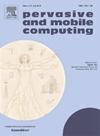Service placement strategies in mobile edge computing based on an improved genetic algorithm
IF 3.5
3区 计算机科学
Q2 COMPUTER SCIENCE, INFORMATION SYSTEMS
引用次数: 0
Abstract
In mobile edge computing (MEC), quality of service (QoS) is closely related to optimizing service placement strategies, which is crucial to providing efficient services that meet user needs. However, due to the mobility of users and the energy consumption limit of edge servers, the existing policies make it difficult to ensure the QoS level of users. In this paper, a novel genetic algorithm based on a simulated annealing algorithm is proposed to balance the QoS of users and the energy consumption of edge servers. Finally, the effectiveness of the algorithm is verified by experiments. The results show that the QoS value obtained by the proposed algorithm is closer to the maximum value, which has significant advantages in improving QoS value and resource utilization. In addition, in software development related to mobile edge computing, our algorithm helps improve the program’s running speed.
基于改进遗传算法的移动边缘计算服务安置策略
在移动边缘计算(MEC)中,服务质量(QoS)与优化服务放置策略密切相关,这对于提供满足用户需求的高效服务至关重要。然而,由于用户的移动性和边缘服务器的能耗限制,现有的策略很难保证用户的 QoS 水平。本文提出了一种基于模拟退火算法的新型遗传算法,以平衡用户的 QoS 和边缘服务器的能耗。最后,通过实验验证了算法的有效性。结果表明,所提算法得到的 QoS 值更接近最大值,在提高 QoS 值和资源利用率方面具有显著优势。此外,在与移动边缘计算相关的软件开发中,我们的算法有助于提高程序的运行速度。
本文章由计算机程序翻译,如有差异,请以英文原文为准。
求助全文
约1分钟内获得全文
求助全文
来源期刊

Pervasive and Mobile Computing
COMPUTER SCIENCE, INFORMATION SYSTEMS-TELECOMMUNICATIONS
CiteScore
7.70
自引率
2.30%
发文量
80
审稿时长
68 days
期刊介绍:
As envisioned by Mark Weiser as early as 1991, pervasive computing systems and services have truly become integral parts of our daily lives. Tremendous developments in a multitude of technologies ranging from personalized and embedded smart devices (e.g., smartphones, sensors, wearables, IoTs, etc.) to ubiquitous connectivity, via a variety of wireless mobile communications and cognitive networking infrastructures, to advanced computing techniques (including edge, fog and cloud) and user-friendly middleware services and platforms have significantly contributed to the unprecedented advances in pervasive and mobile computing. Cutting-edge applications and paradigms have evolved, such as cyber-physical systems and smart environments (e.g., smart city, smart energy, smart transportation, smart healthcare, etc.) that also involve human in the loop through social interactions and participatory and/or mobile crowd sensing, for example. The goal of pervasive computing systems is to improve human experience and quality of life, without explicit awareness of the underlying communications and computing technologies.
The Pervasive and Mobile Computing Journal (PMC) is a high-impact, peer-reviewed technical journal that publishes high-quality scientific articles spanning theory and practice, and covering all aspects of pervasive and mobile computing and systems.
 求助内容:
求助内容: 应助结果提醒方式:
应助结果提醒方式:


